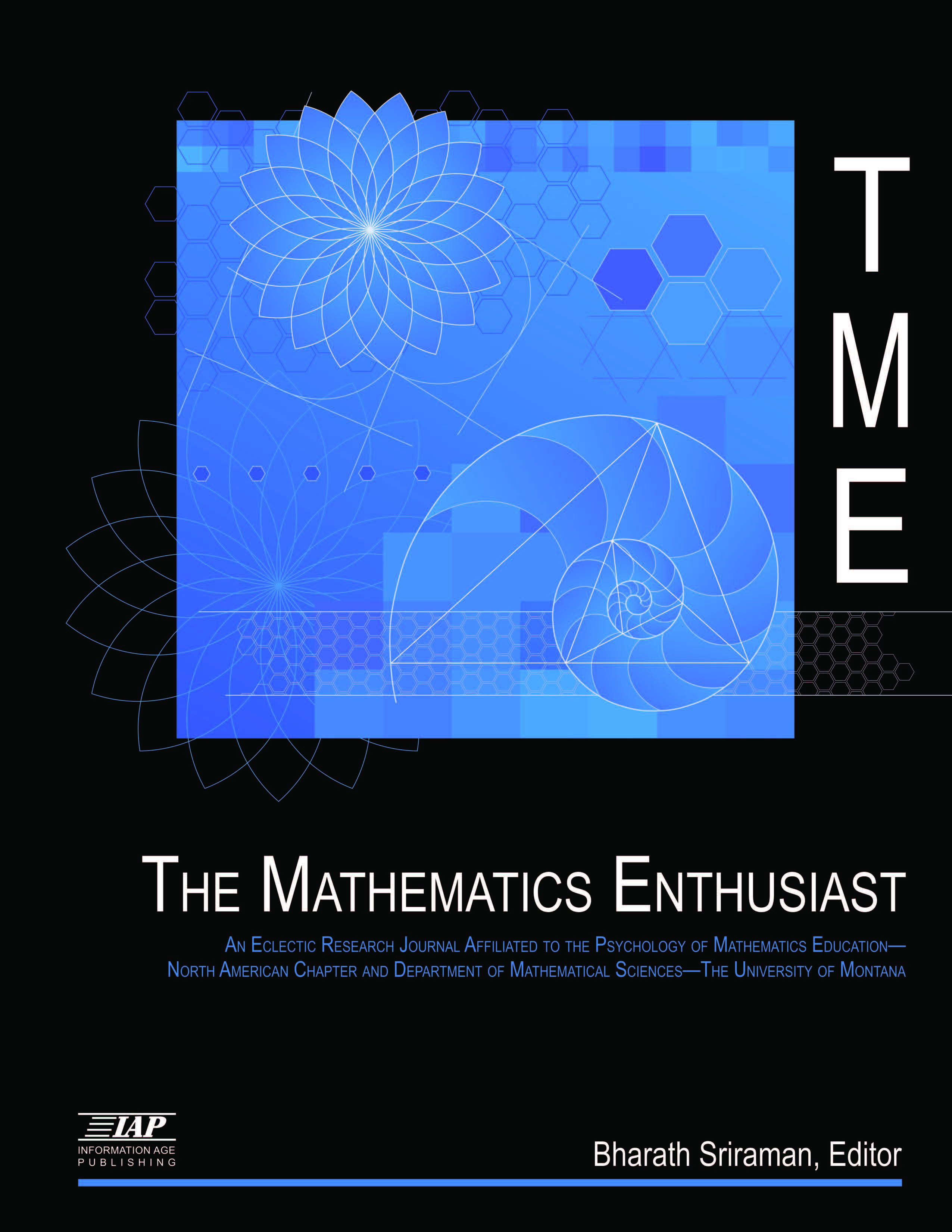
Volume
17
Issue
2-3
Abstract
Attention to issues of social justice is becoming increasingly prominent in teacher education programs and in the field of mathematics education (e.g., White, Crespo, & Civil, 2016). Moreover, scholars have argued that instead of remaining isolated in a single course (typically the “multicultural” course), a focus on social justice must be integrated throughout teacher education programs (McDonald & Zeichner, 2009). This requires that mathematics teacher educators be prepared to address social justice in their mathematics content and methods courses. There are a variety of perspectives in the literature on social justice mathematics education (Wager & Stinson, 2012). In my work I focus on preparing teachers who can connect mathematics to real-world contexts that involve exploring, analyzing, and proposing solutions for current social and political issues (e.g., Gutstein, 2006)—which I refer to as sociopolitical mathematics teaching. By drawing on existing literature and my own experiences, I identify the knowledge bases that teachers and mathematics teacher educators must draw on in order to enact sociopolitical mathematics. I provide tools for engaging in sociopolitical mathematics teaching, discuss a concrete example from my own practice, and propose a framework for thinking about the knowledge needed for sociopolitical mathematics teaching.
First Page
435
Last Page
468
Recommended Citation
Felton-Koestler, M. D. (June 2020). Teaching Sociopolitical Issues in Mathematics Teacher Preparation: What do Mathematics Teacher Educators Need to Know? In A. Appova, R. M. Welder, and Z. Feldman, (Eds.), Supporting Mathematics Teacher Educators’ Knowledge and Practices for Teaching Content to Prospective (Grades K-8) Teachers. Special Issue: The Mathematics Enthusiast, ISSN 1551- 3440, vol. 17, nos. 2 & 3, pp. 435–468. ScholarWorks: University of Montana. Retrieve (open access) from: https://scholarworks.umt.edu/tme
Digital Object Identifier (DOI)
10.54870/1551-3440.1494
